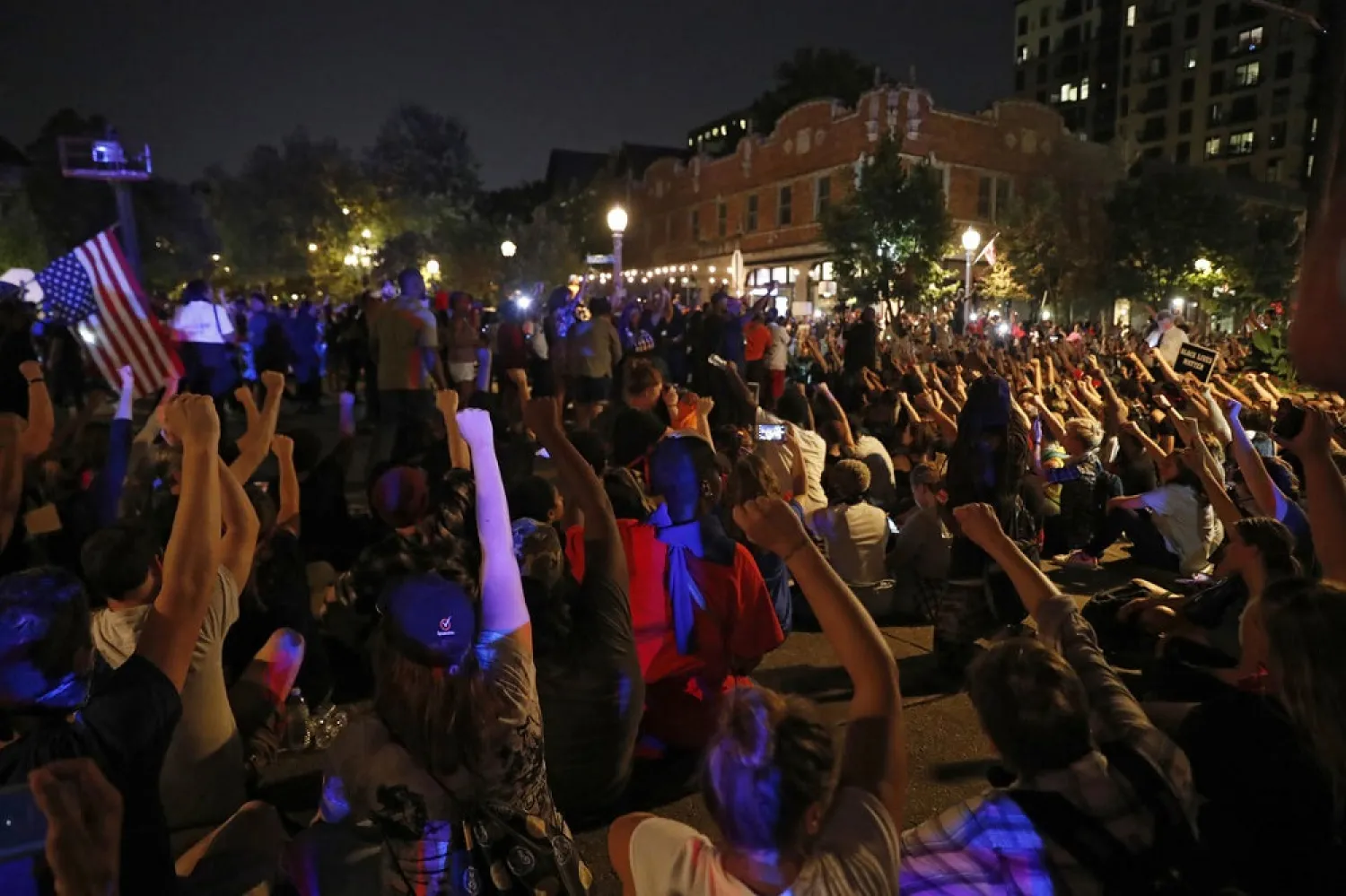Protesters continued for a second night in a row in the US city of St. Louis after a white former policeman was acquitted of the fatal shooting of a black man.
The protests turned violent when demonstrators refused to disperse, breaking windows at dozens of businesses and throwing objects at police, who moved in with hundreds of officers in riot gear to make arrests.
Several protesters were seen in handcuffs and city and county police tweeted that they arrested nine people. Police in riot gear were seen carrying one man away from the scene upside down in handcuffs. At least one demonstrator was treated after he was hit with pepper spray.
"We had been getting such a good turn out earlier and it was a peaceful protest," said Jomar Jackson, 32. "But then a bunch of people came and decided to be disruptive."
The confrontation took place in the Delmar Loop area of University City, a suburb about 10 miles (16 kilometers) west of St. Louis near Washington University.
University City had been the scene of a tense but calm march earlier in the evening to protest a judge's ruling Friday clearing ex-officer Jason Stockley of first-degree murder in the 2011 shooting of 24-year-old Anthony Lamar Smith.
After the spasm of violence ended, a reporter for The Associated Press found at least half of the businesses on one side of the street with broken windows along a two block area.
Sam Thomas, who was helping his friend clean up the glass from the shattered windows of his business said he understands why people are angry. The US justice system is broken and needs to be fixed, he said.
"I'm not saying this is the right way to fix it," he said of the damage. "The window isn't murdered. Nobody is going to have a funeral for the window. We can replace it."
Elisheva Heit, whose flower shop window was smashed on the eve of its grand opening, said "I don't understand how this would bring the poor guy back to life."
"We don't want to see property destruction or see people getting hurt," Elad Gross, a 29-year-old St. Louis civil rights attorney, told Reuters as activists gathered peacefully at another protest site in a park on Saturday.
"But this is a protest that addresses injustices not only happening here in St. Louis but around the country."
The eruption late Saturday followed a day of non-violent demonstrations at suburban shopping malls.
Demonstrators shouted slogans such as "black lives matter" and "it is our duty to fight for our freedom" as they marched through West County Center mall in the city of Des Peres, west of St. Louis. A group also demonstrated at Chesterfield Mall in the suburbs and at a regional food festival.
Organizers took their grievances to the suburbs Saturday to spread the impact of the protests beyond predominantly black neighborhoods to those that are mainly white.
"I don't think racism is going to change in America until people get uncomfortable," said Kayla Reed of the St. Louis Action Council, a protest organizer.
Smith's death is just one of several high-profile US cases in recent years in which a white officer killed a black suspect, including the 2014 killing of Michael Brown in nearby Ferguson that sparked months of angry and sometimes violent protests.
Federal prosecutors said Saturday they won't open a new civil rights investigation into the killing.
Justice Department spokeswoman Lauren Ehrsam said the department decided in September not to prosecute, but didn't announce it then to avoid affecting the judge's decision.
After Stockley was acquitted, violence on Friday night resulted in nearly three-dozen people arrested and 11 police officers injured, including a broken jaw and dislocated shoulder, police said. Five officers were taken to hospitals. Police said that 10 businesses were damaged. Protesters also broke a window and spattered red paint on the home of St. Louis Mayor Lyda Krewson.
Ex-officer Stockley shot Smith after the suspected drug dealer fled from officers trying to arrest him.
Stockley, 36, testified he felt he was in danger because he saw Smith holding a silver revolver when the suspect backed his car toward officers and sped away.
Prosecutors said Stockley planted a gun in Smith's car after the shooting. The officer's DNA was on the weapon but Smith's wasn't. Dashcam video from Stockley's cruiser recorded him saying he was "going to kill this (expletive)." Less than a minute later, he shot Smith five times.
Stockley left the force in 2013 and moved to Houston.









